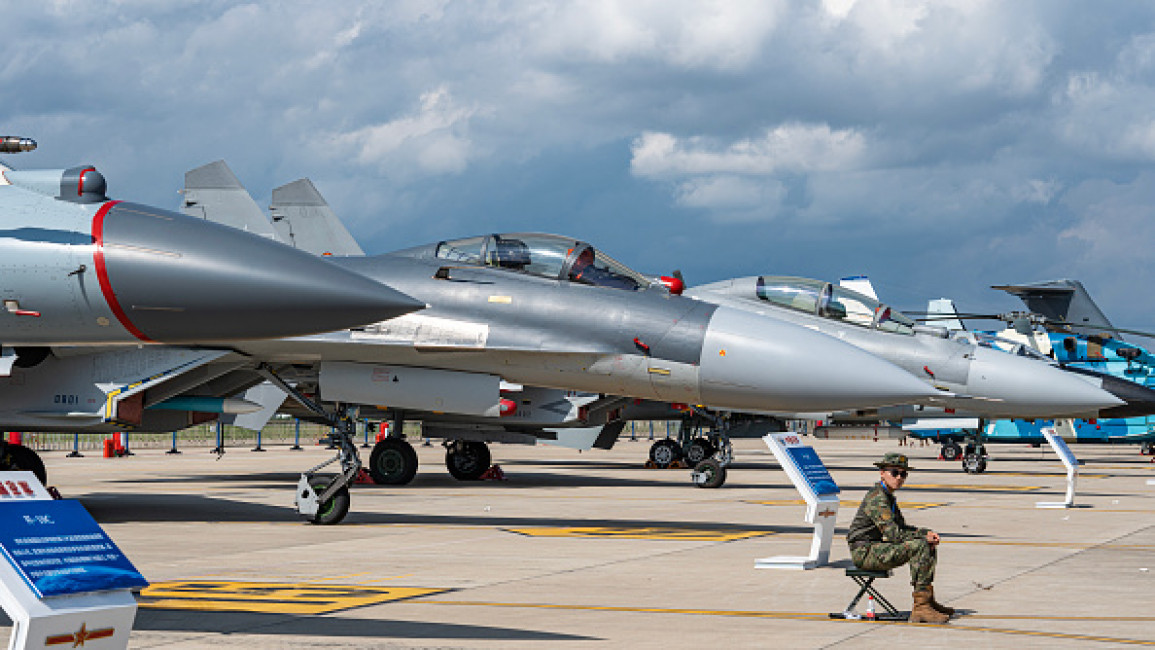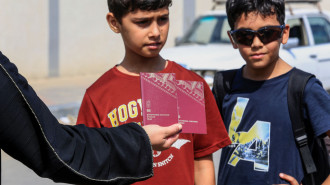Egypt’s potential purchase of Chinese J-10C fighter jets signals shift from US arms
Egypt has reportedly purchased Chinese J-10C fighter jets, a move analysts say signals Beijing’s growing influence in the Middle East and regional powers looking to diversify their military procurement, reducing their reliance on the United States.
According to Bulgarian defence news agency Bulgarian Military, Egypt placed its first order for China’s J-10C "Vigorous Dragon" fighter jets on August 19.
This move makes Egypt the second country, after Pakistan, to purchase the J-10C, which is described as a versatile 4.5-generation multirole fighter offering advanced combat capabilities at a competitive cost.
The J-10C is also said to be quipped for air-to-air and air-to-ground missions, excelling in air superiority, and has been compared to the American F-16.
An earlier report by Military Watch Magazine stated that Egypt’s decision to acquire the J-10C is part of its broader effort to modernise its air force, particularly as it phases out older F-16 aircraft.
It added that the country reportedly declined offers from the US and Russia for upgrading or replacing its fleet, after the US proposed modernising Egypt’s F-16s to the F-16V variant and supplying new F-15 jets, but Egypt turned down the deal.
Likewise, a Russian offer for MiG-29 fighters was reportedly rejected, following unsatisfactory experiences with earlier Russian purchases, including the MiG-29M in 2015.
A key factor driving Egypt’s move toward China is its frustration with US restrictions on advanced weaponry.
Despite being one of the largest F-16 operators, Egypt’s fleet is limited by outdated technology and the absence of beyond-visual-range (BVR) missiles.
US foreign influence has historically delayed or restricted the delivery of advanced upgrades to Egypt- due to human rights concerns and regional politics.
The 2013 military ousting of former Egyptian president Mohamed Morsi saw the US temporarily suspending military aid, which hindered updates to Egypt’s ageing F-16 fleet.
According to experts, these restrictions have prompted Egypt to seek more independent options for its defence supplies.
Countries like China, which impose fewer political conditions, have been suspected to become attractive partners.
Chinese military equipment offers fewer restrictions and allows for quicker, more flexible upgrades.
In a sign of deepening military ties, Egyptian Air Force Commander Lieutenant General Mahmoud Fuad Abdel Gawad recently met with Chinese counterpart General Chang Dingqiu in Beijing to discuss the transfer of J-10C and J-31 fighter jets.
Egypt, along with Iran, the UAE, and Ethiopia, recently joined the BRICS economic group, signalling a broader geopolitical shift towards aligning with the Global South.




 Follow the Middle East's top stories in English at The New Arab on Google News
Follow the Middle East's top stories in English at The New Arab on Google News
![People gathered around the rubble of destroyed houses to search for survivors [Getty]](/sites/default/files/styles/image_330x185/public/2024-11/GettyImages-2184733820.jpg?h=199d8c1f&itok=NiM1LO2f)

